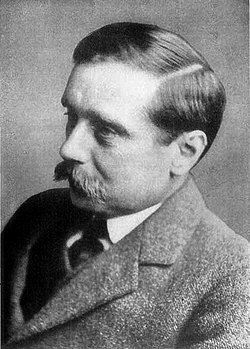 First edition cover | |
| Author | H. G. Wells |
|---|---|
| Language | English language |
| Genre | Column (periodical) |
| Publisher | T. Fisher Unwin |
Publication date | 1924 |
| Publication place | United Kingdom |
| Media type | Print (Hardback) |
| Pages | 352 |
A Year of Prophesying collects 55 newspaper columns written by H. G. Wells in 1923 and 1924.
Contents
After the extraordinary success of The Outline of History , Wells was in great demand for commentary on current events. He wrote regular columns first for The Westminster Gazette and later for The New York Times and the Daily Express . [1] The articles in A Year of Prophesying were written for the McClure Syndicate.
